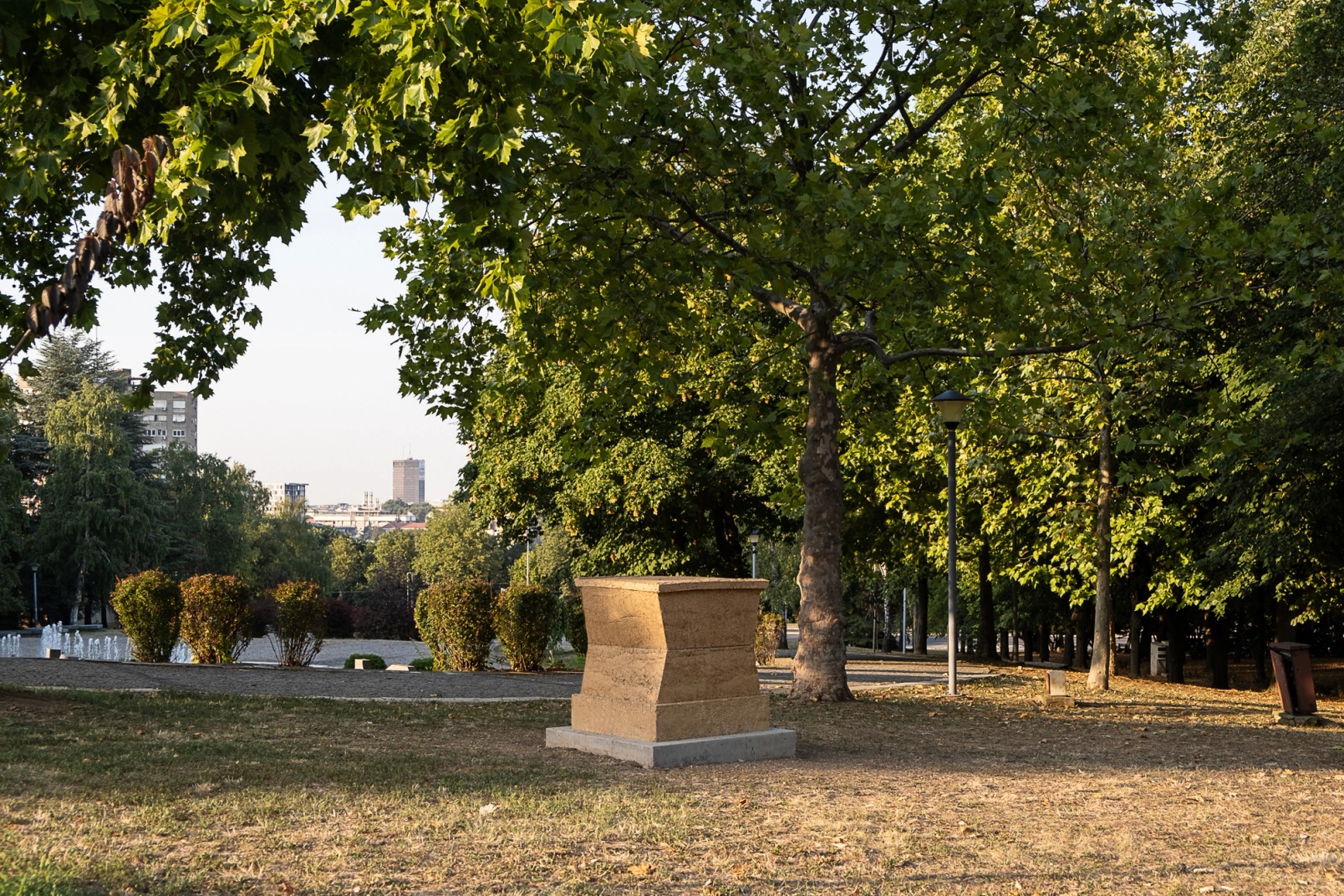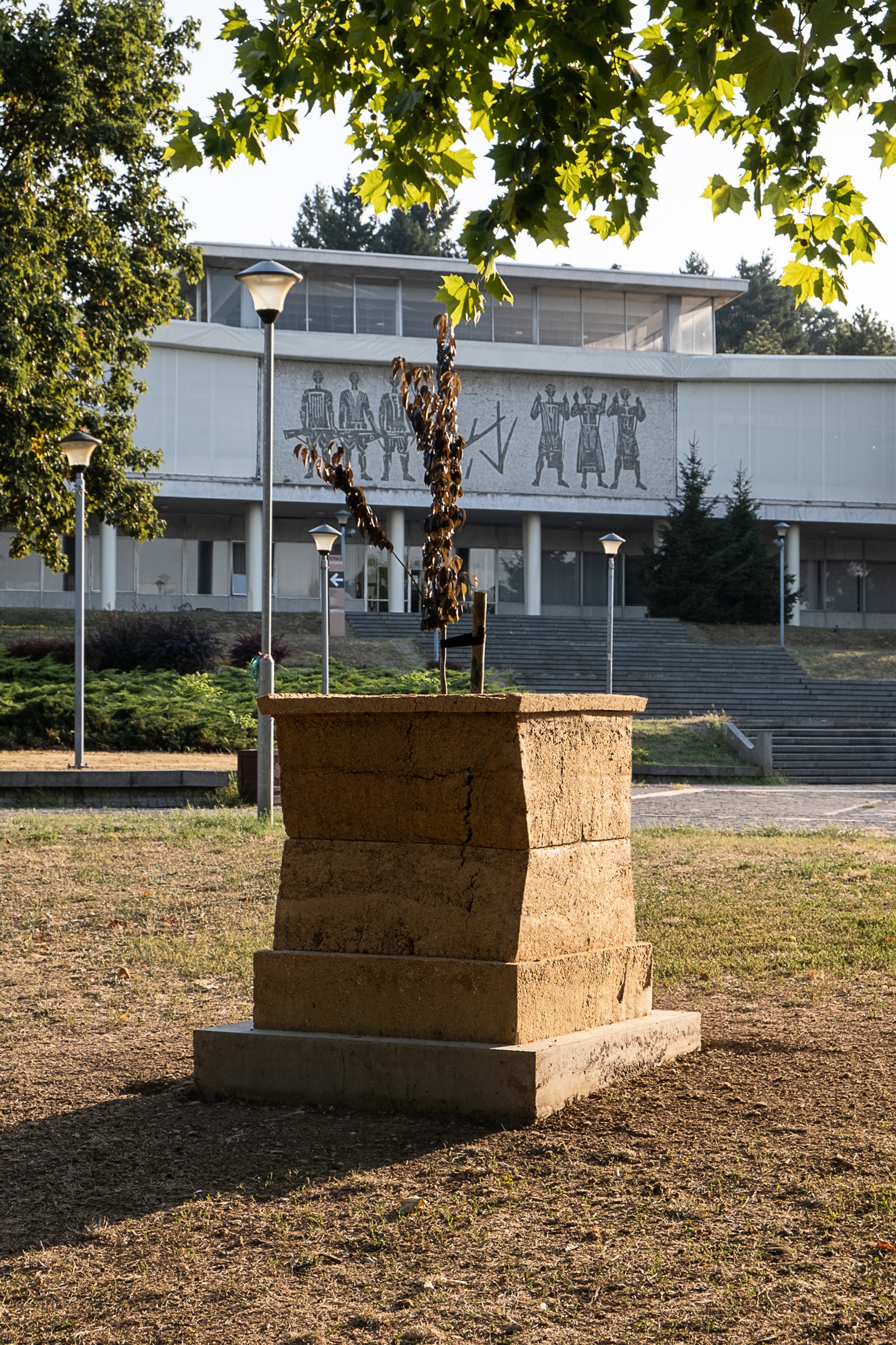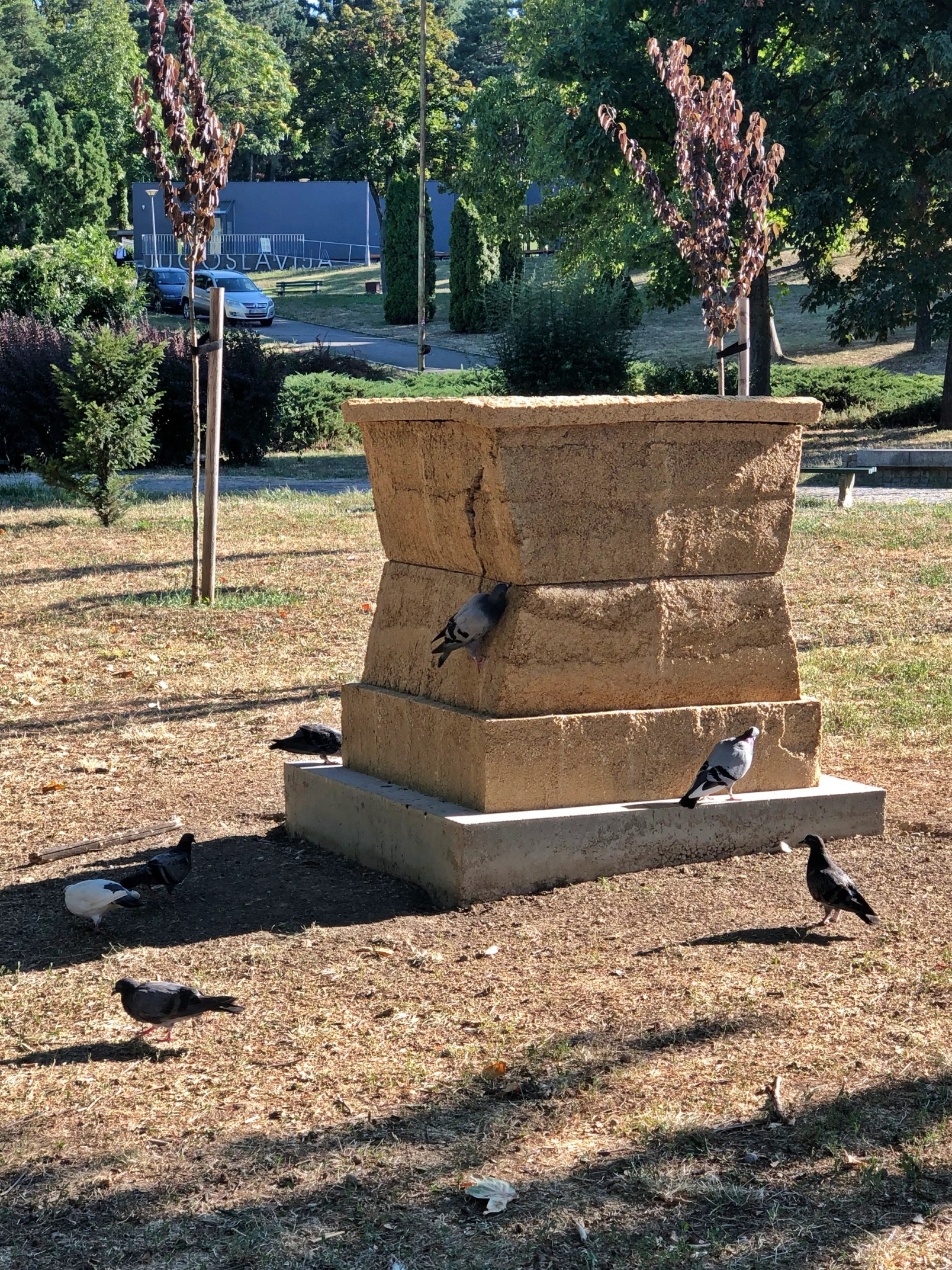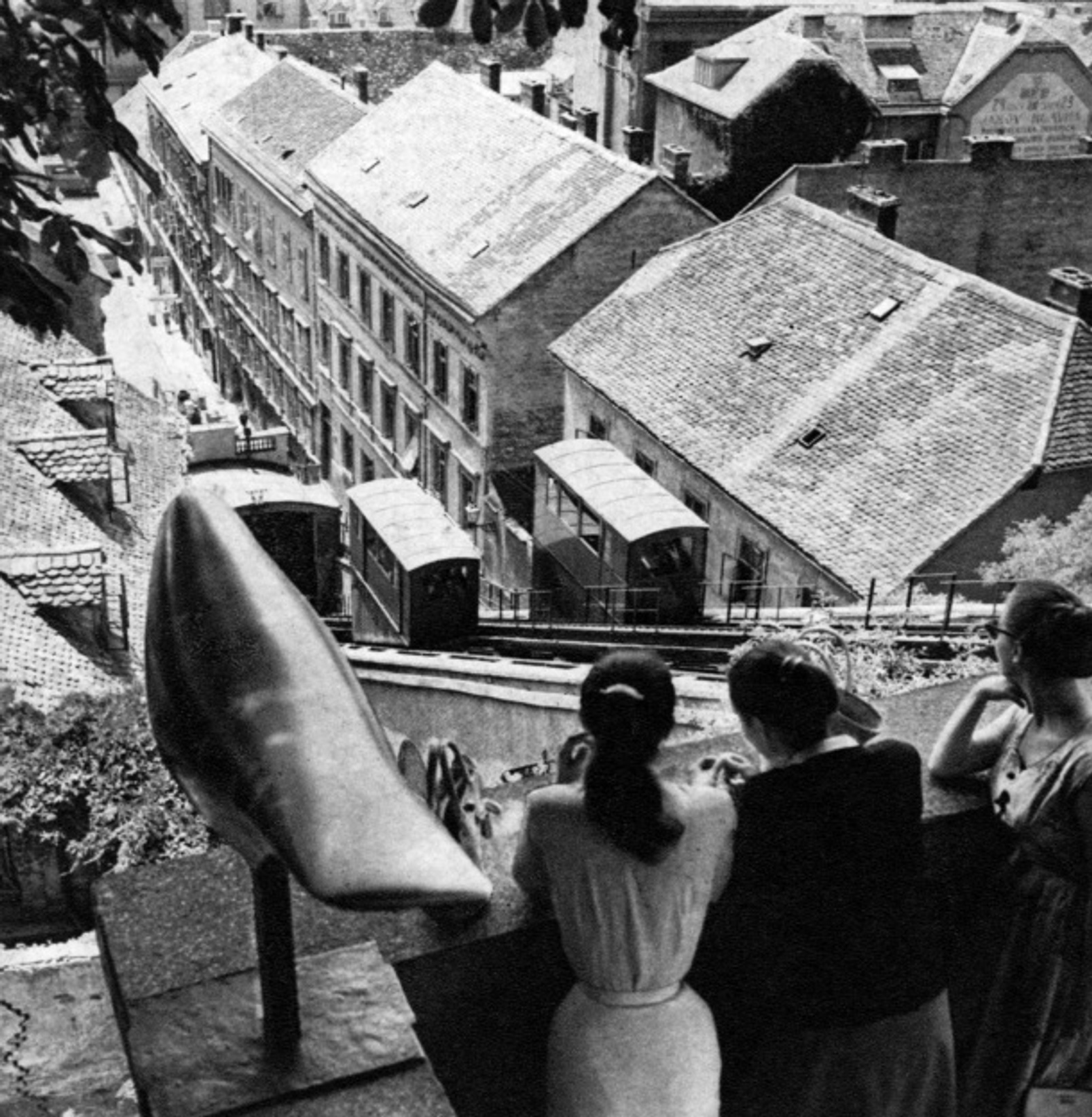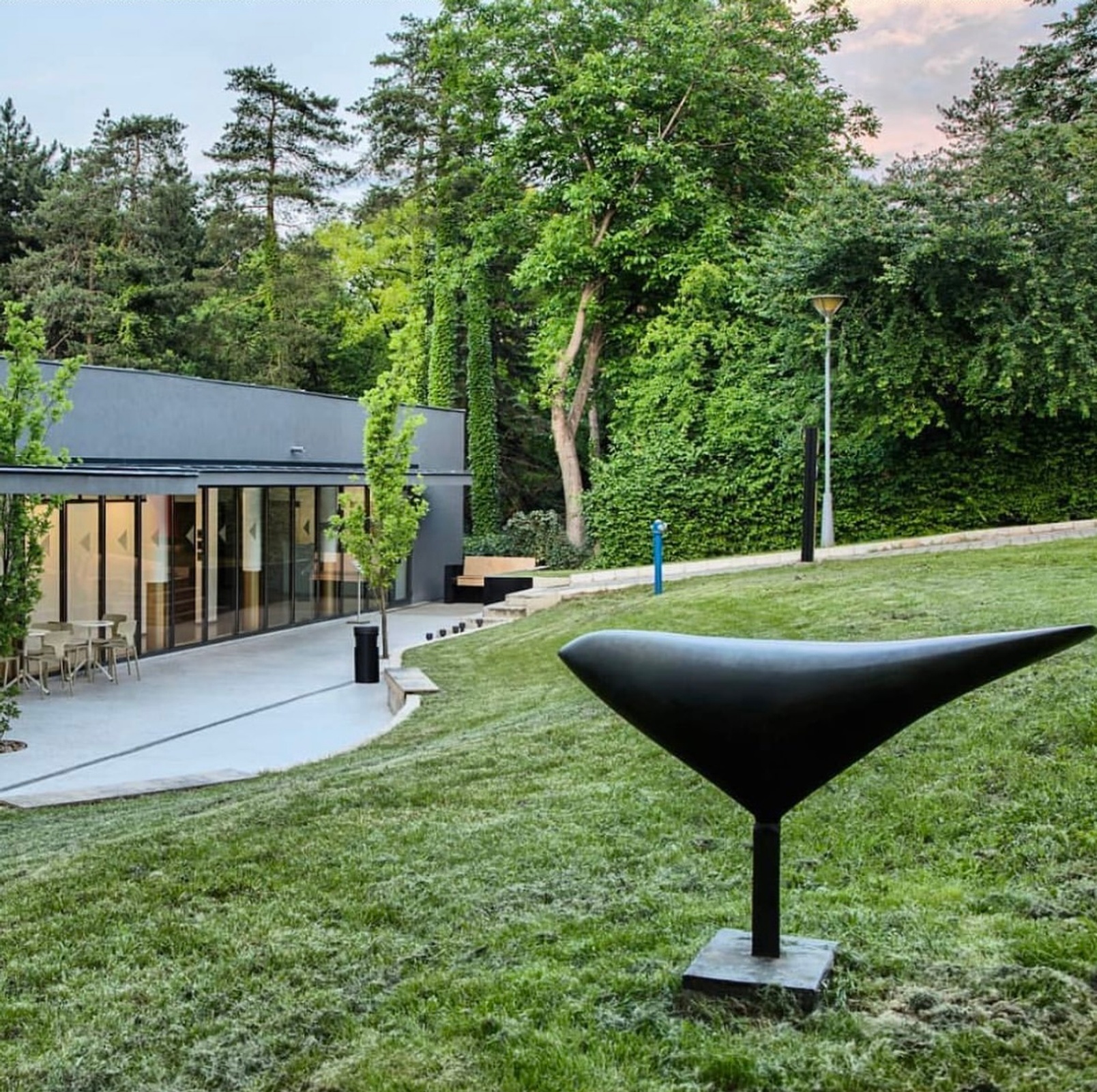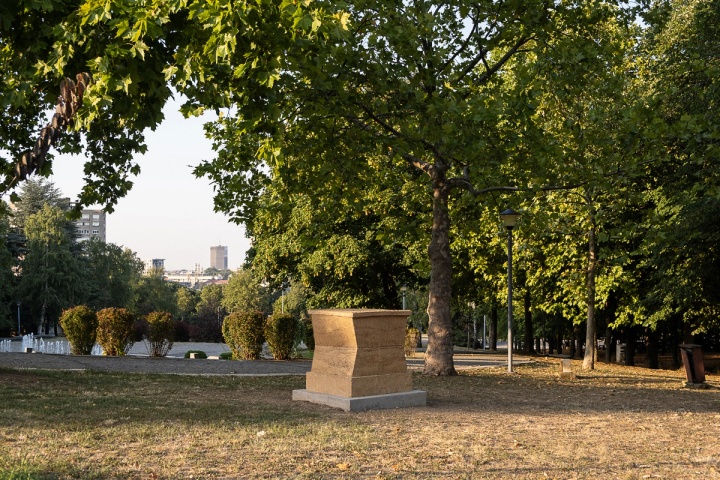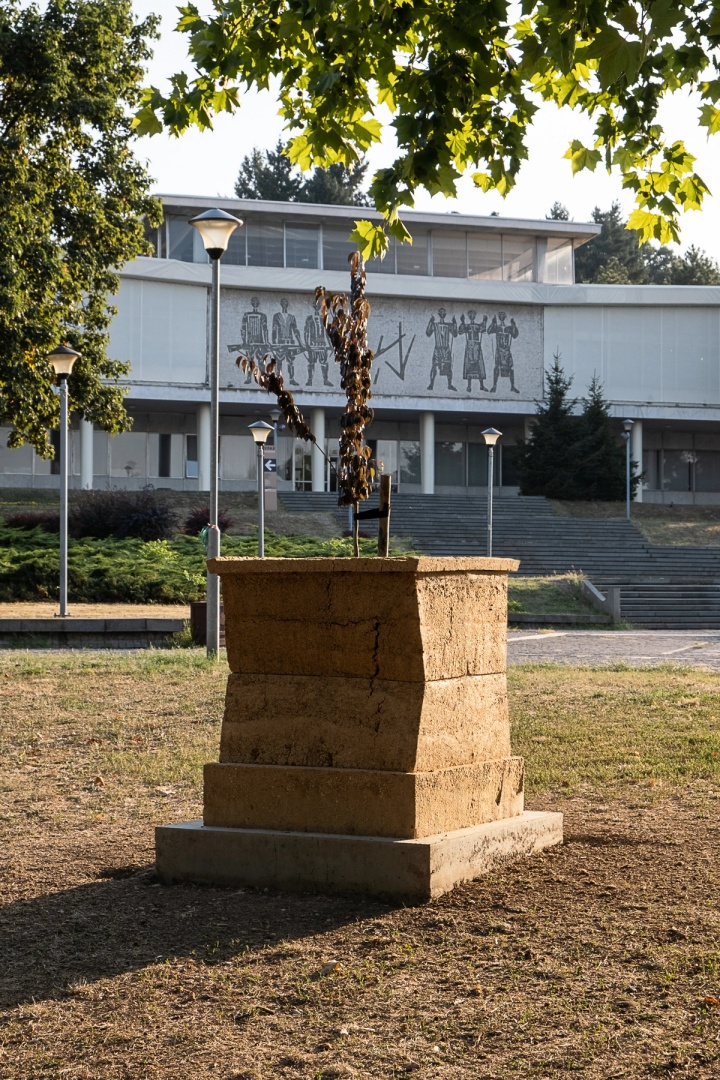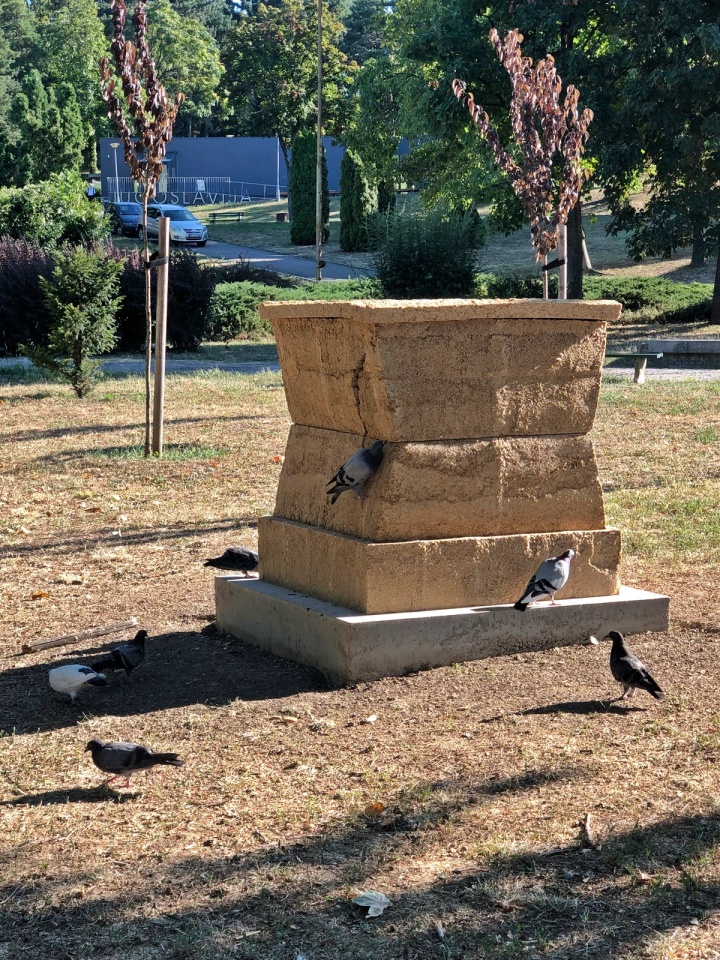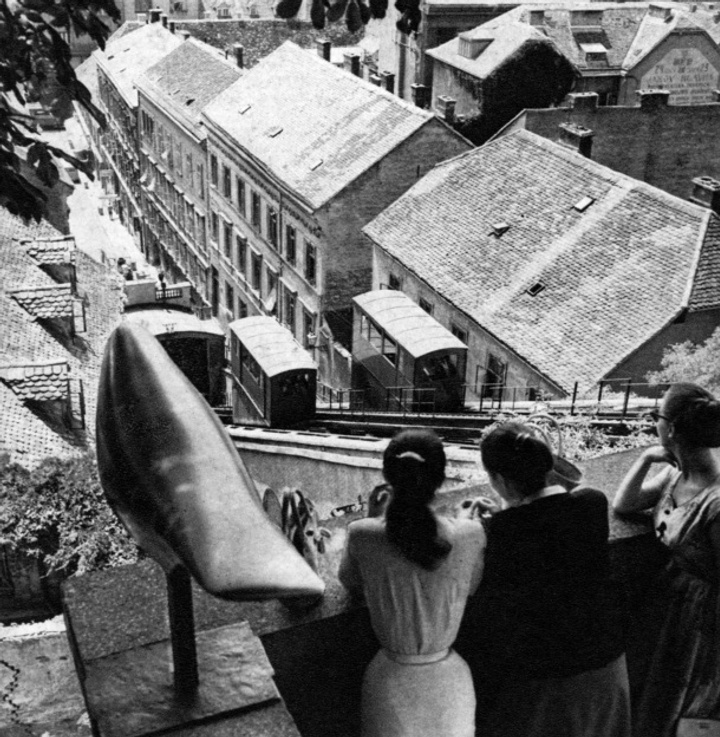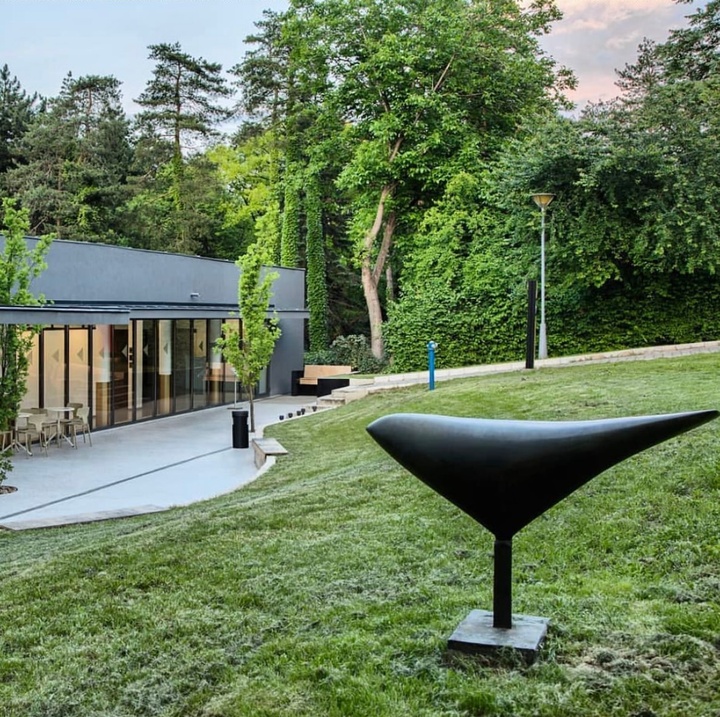Plinth (minor key)Dora Budor
The 58th October Salon / Belgrade Biennial 2021: THE DREAMERS
Belgrade
.–
Through complex and unstable ecosystems in which each element maintains an interdependent relationship with the other, Dora Budor’s installations, environments and sculptures engage in a dialogue with their architectural situation, reacting to and renegotiating their initial conditions. The result is a complex body of artistic actions that redefine the spatial characteristics of the exhibition site, highlighting layers and presences that are otherwise hidden or invisible. The unseen details, such as the dust that settles on objects, the sounds from nearby construction, surrounding weather conditions and historical precursors, are revealed and brought to the foreground. Similar to the site, time is conceived both chronologically and meteorologically. Temporal experience plays a central role in the artist’s work, which on the whole, presents itself as a device marked by permeability and sensitivity to the world outside.
The work Plinth (minor key), (2021) is an outdoor piece conceived specifically for the Belgrade Biennale. A sculptural plinth made out of birdseeds and other edible substances is designed to take architectural traits from the Museum of Yugoslavia and the surrounding park, which were built from the assemblage of various materials shipped from all over the former federation. The sculptural substructure, which exists in a dialogue with the nearby sculpture Bird (1956) by Vojin Bakić, changes its appearance throughout the duration of the exhibition. Metabolized by the birds usually present or migrating through the park, the piece is slowly taken apart and dispersed through the city. The work questions the ideas of permanence, preservation and monumentality through the composition of an accidental choreography -- a sort of visual music based on mutability, volatility, deconstruction and regeneration.
The Plinth (minor key) was produced for The 58th October Salon I Belgrade Biennial 2021: THE DREAMERS, Belgrade, Serbia, curated by Ilaria Marotta and Andrea Baccin, founders of CURA.
The work was made possible through the generous support of the Balkan Projects.
